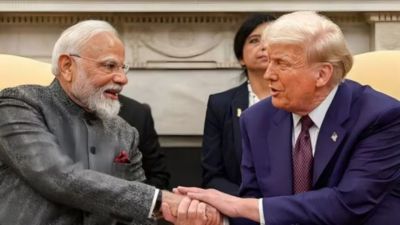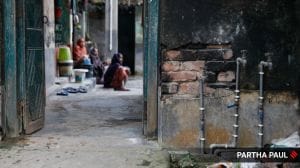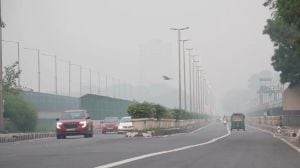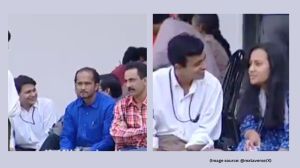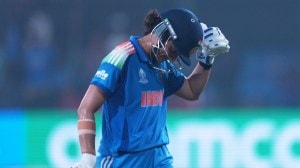Parivar at peace with PM’s Pak moves
The RSS today collected the leaders of all its outfits here for a marathon three-day session to draw a broad Parivar perspective on all cruc...

The RSS today collected the leaders of all its outfits here for a marathon three-day session to draw a broad Parivar perspective on all crucial national issues to eliminate internal conflict and formulate a strategy to combat the challenge posed by its adversaries. The outcome is vital to the BJP’s preparations for the next Lok Sabha polls.
In keeping with the task at hand, the entire top brass of the Parivar turned up for the meeting. The total of 55 participants included Prime Minister A.B. Vajpayee, Deputy Prime Minister L.K. Advani, RSS sarsanghchalak K.S. Sudarshan and general secretary Mohan Rao Bhagwat. Vajpayee would address the meeting on Saturday. Today’s deliberations focused on coordination within the Parivar and internal security of the country.
The conclave had barely got underway when the RSS signalled new-found unity by endorsing the Prime Minister’s initiative for peace with Pakistan. Deviating from the normal anti-Pakistan line of the Sangh, joint general secretary Madan Dass Devi said: ‘‘We welcome good-neighbourly relations between India and Pakistan. However, we would caution the Government not to take the Pakistan response at its face-value.’’
When asked about the agenda of the meeting, he said: ‘‘We will discuss all issues, including disinvestment, economic reforms, Ayodhya, Kashmir and terrorism.’’ This was inevitable, given the presence of leaders of the Bharatiya Mazdoor Sangh, Bharatiya Kisan Sangh, VHP, Swadeshi Jagran Manch, ABVP, Vanvasi Kalyan Ashram and other organisations.
The participation of Law Minister Arun Jaitley was indicative of the fact that the Government wishes to share its legal limitations on Ayodhya with the Parivar. Other ministers may be called in later to join the discussions on issues like economic reforms and disinvestment. Ayodhya and economic policies are key areas of conflict in the Parivar. Devi said the leaders agreed that they had to put a mechanism in place for an effective coordination among themselves. He said there was a proposal to have a select groups of BJP MPs, headed by ministers, who would interact with the Sangh bodies concerned to exchange views on various issues on a regular basis.
He said: ‘‘Different mass organisations have their own concerns which they would place before decision-makers.’’ These groups, according to him, could extend the dialogue to organisations even outside the Sangh-fold. ‘‘This would ensure least resistance to policies. Besides, the Government can also explain its stand to various sections,’’ Devi added.
The RSS leader, who liaises with the BJP, avoided a categorical reply when asked if the Sangh would loan more pracharaks to the BJP in view of its decision to enroll 10,000 full-timers for contesting the next Lok Sabha polls. He said: ‘‘We are independent organisations who provide training to our cadres according to our requirements. The RSS helps whenever it is sought.’’
Regarding the occasional outbursts of VHP and SJM leaders against the Government, Devi said: ‘‘All organisations have their distinct areas of operation. However, we feel that they should do so without any bitterness.’’





- 01
- 02
- 03
- 04
- 05


